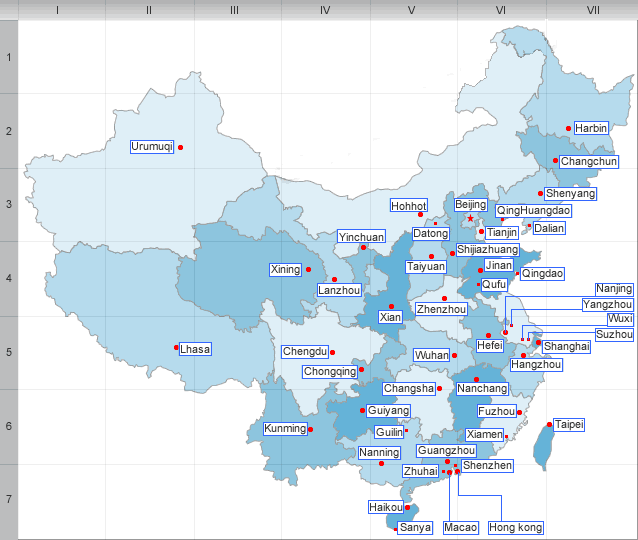Zhoukou Overview
Overview
Zhoukou is a city with a population of slightly more than 10 million and covers an area of about 12,000 square kilometers. Lies in the southeast of Henan province, Zhoukou City is adjacent to Anhui province. There are eight counties, one city and one district under its administration. The administrative divisions of Zhoukou are as follows: Zhouhui District, Xian gcheng City, Huaiyang County, Luyi County, Fugou County, Shenqiu County, Taikang County, Dancheng County, Xihua County and Shangshui County.
Zhoukou lies in the reaches of the Huaihe River with four fan-shaped water systems, namely, Shaying River, Guo River, Xifei River, and Ru River. Among the four water systems, Shaying River is the biggest branch of the Huaihe River. The Sha River originates from the Shiren Mountain of the west of Lushan County in Henan province; however, the Yin River originates from the Yangqian and Shaoshi of the ranges of the Songshan Mountain. The two rivers converge into one in the Sunzui Village of Chuanhui District, forming Shaying River. Shaying River and its branches (Jialu River, Fenquan River, Heihe, New Canal, XinCaihe) run through the whole city, covering 76% of the total area. The four great water systems meander and crisscross each other on their journey, forming not only a “Natural Irrigation” system, but also captivatingly beautiful natural scenery. The rivers look like numerous dark green ribbons, flow from the west to the east, dotting the boundless plain and fertile land into a fascinating heaven.
With a long history, Zhoukou is one of the most important birthplaces of the culture of Yellow River. It is a remarkable place producing outstanding people and has many well-preserved places of interest and relics. In the Huaiyang County (the ancient Chenzhou), the mausoleum and palace hall of Fuxi (one of the earliest legendary rulers in China) are well-preserved. There are “Seven Terraces and Eight Scenery” in Huaiyang County, such as Huagua Terrace, which has been used for Fuxi to judge yin and yang, disaster or bliss, Xiange Terrace, the place Confucius and Chencai starved to death, and the Pingliang Terrace where Baozheng released food in Chenzhou. In Xihua County, there is relic where the Nvwa (a goddess in Chinese mythology) “Refine the Stone to Repair the Sky”. The first philosopher in China, Lao Zi, founder of Taoism, was born in Luyi County. In the territory of the county, many cultural relics are persevered, such as Taiqing Palace, Laojun Terrace, Jiubu Well, etc.
| PREV:Zhumadian Overview | Next:Xuchang Overview |



